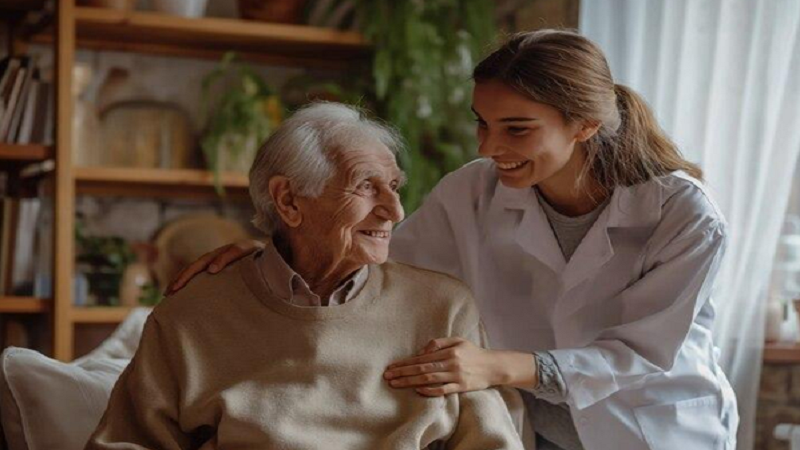With aging, older adults may lose their independence due to declining cognitive ability and, in particular, patients having Alzheimer’s disease, dementia, or any other form of memory-related problems. Memory care homes are special care living homes that cater to the demands of the elderly suffering from such issues. This article elucidates how memory care homes help aged persons enhance their quality of life and peace of mind for their families.
What Is a Memory Care Home?
Memory care homes are specialized residential communities created for seniors who suffer from impairments in memory, such as Alzheimer’s disease and dementia. They are different from typical assisted living facilities because of a higher supervision and care emphasis while focusing on cognitive support. The employees who manage these homes understand that seniors with memory loss have unique challenges, thus creating a safe and organized environment for them seniors.
Points on How Memory Care Can Help Seniors
Here are a few points on how memory care in Oregon can help seniors in the lowest phase of their life:
● Tailored Support with Cognitive Decline:
Memory care homes are more elevated than ordinary assisted living homes. This is because memory loss in seniors requires a higher level of care in that they need:
a) Constant Surveillance:
Memory care homes provide round-the-clock supervision to keep the clients safe. Seniors with dementia can easily become confused or wander off, hence the need for constant close observation.
b) Specialized programs:
Specialized homes create activity programs that are designed to develop cognitive ability and slow down memory-associated disease progress. Examples of such programs will be puzzles, music therapy, art therapy, memory games, and much more that will help enhance stimulation among seniors and quality of living.
c) Personalized Care Plans:
The memory care facilities prepare a specific care plan for every resident based on his cognitive needs and past medical history. In such an approach, every elder is given the right amount of support to manage the condition.
● Emotional and Psychological Support
Memory care homes offer a comprehensive approach to support older adults with memory loss and their families. Beyond the physical and cognitive activities, these facilities provide essential emotional support. Support groups allow residents to connect with others who understand their experiences, fostering a sense of community.
Counseling and therapy sessions, led by licensed therapists specializing in memory loss, help residents manage frustrations, confusion, and fear associated with their condition. Additionally, memory care Brookings Oregon actively involves families through regular communication, updates on residents’ progress, and family support groups.
● Safe and Secured Environment
One of the most important factors of a memory care home is ensuring that it is safe and secure. Elderly people with memory disorders are at a much larger risk of accidents, getting lost, or wandering away. A memory care home is intended to significantly minimize the likelihood of such risks:
a) Wander-Proof Design:
Memory care facility designs take into account the safety of the residents. Memory care homes usually have doors that are locked or alarmed, courtyards that are enclosed, and alarms in case someone tries to leave the facility alone.
b) Prevention of Falls:
Falls are usually a common factor in memory care homes. Therefore, features such as non-slip floors and grab bars in bathrooms are common in many memory care facility designs.
● Trained Staff for Memory Care Needs
The staff at memory care homes is trained to understand and cater to the needs of residents with diminished capacity. This training is far beyond the basic elder care and includes:
a)Dementia-Specific Care:
Staff is trained to accommodate behaviors resulting from dementia, including agitation, aggression, confusion, or anxiety. They are also skilled in soothing and redirecting techniques when the resident gets disoriented.
b)Effective Communication Techniques:
Most seniors cannot express their thoughts, needs, and wants because of memory loss. Memory care staff is trained on using non-verbal cues, body language, and positive reinforcement to ensure that the seniors know what’s happening or being said even when they forget.
c)Medications:
Patients with memory care will have several medications to control the disorder. Staff is trained in administering these drugs, tracking their effects, and ensuring that the right dosages are given to the resident at the appropriate time.
● Involvement and Cognitive Activation
For older adults with memory impairments, memory care homes offer a stimulating environment that can help slow cognitive decline and improve overall well-being. By incorporating cognitive activities like memory games and puzzles, physical exercises like yoga and walking, and social interactions through group events, these facilities provide a holistic approach to addressing the needs of their residents, promoting mental, physical, and emotional health.
Conclusion
Memory care homes play a very important role in enhancing the quality of life among the elderly diagnosed with Alzheimer’s or dementia. These places offer support from staff, security, planned activities, and personalized care plans that help the residents cope with the effects of mental deterioration. However hard it is to place a loved one in memory care in Brookings Oregon, these homes give families peace of mind and come with an easy and structured setting for seniors confronting some crippling effects of loss of memories.




